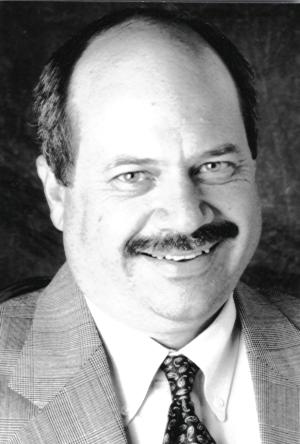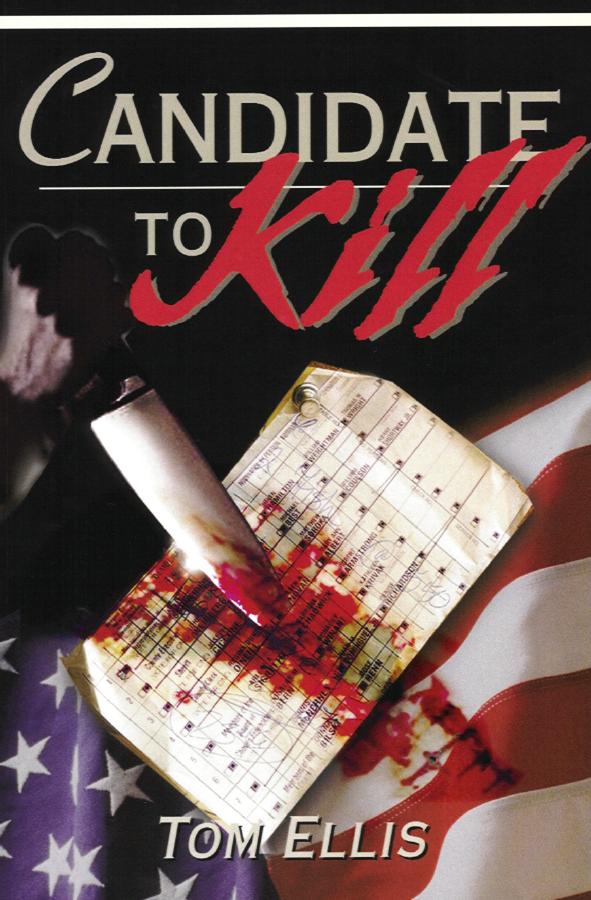_ ____
____
_ ____
____
I have known Tom Ellis for many years, for most of those years as the manager of the Washburn Student Union, then, more recently, as Special Assistant to Washburn's President Jerry Farley. But I have known him as a writer since the Spring of 1992, when he entered a Short Short Story Competition that Headwaters, the Washburn writers group of which I was faculty advisor, held on the model of the annual competition Florida State University had been holding for some years. Florida State offered $100 and a box of Florida oranges as prize, so, seeing ourselves as a minor league version, we offered $10 and three lemons. The 33 entries were judged by Mel Falck, the previous year's winner, and the three winners were featured in that Spring 1992 issue of Inscape. Tom was one of them, for his story, "Nantahala Falls," presented below. He was in good company, for the other two winners were Al Clovis, for "Goodby, Grace," and David Tangeman, for "Cy's Story: An American Parable." Al went on to win the Kansas Authors Club's most prestigious Coffin Award in 1993 for his novel, The Potsdam Protocol, and David won the same Coffin Award in 1996 for Gathering Reunion (published by the Woodley Press). So I present Tom's short short story here for old time's sake, and because it as a short example of his writing, but, finally, to encourage you to buy and read his newly published novel, Candidate to Kill. Provoked by the memory of these good friends this experience brings back, I add Al's "Goodby, Grace" below. Then I invite you to link to the item I did on David as the first Kansas author (and still most Kansas author I know) with a book in print I featured, in February of last year (fourteen authors ago), where I used "Cy's Story" as the quick example of his work (and have just now added the excellent poem he wrote on Al Clovis--his friend, too--after his death). Then you can decide who should have received the grand prize of $10 and three lemons.
Nantahala Falls, by Tom Ellis
The Nantahala is a swift clear Smokey Mountain stream, but nearing the falls the water increases speed and the clear tranquility becomes a frothy storm. Steve, in his high-tech yellow paddling suit, is in the canoe just behind me. Intensity is branded onto his face.
Haystacks of icy water precede the drop. The horizon betrays the falls where river and sky, rather than river and mossy bank, unexpectedly meet. The only way over, I reason, is to attack the falls by paddling hard. Momentum will carry me through the abrupt stop at the bottom. I push the boat hard into the unstable river.
I glance back at Steve, who is hunkered down in his canoe against the unpredictable rocking of quickening water. Waves knock his canoe about and spill over into his boat.
In a couple of seconds I hurl over the fourteen foot falls into a churning maelstrom that divides the drop from the calm pool downstream and slip into an eddy behind a large smooth boulder. A small crowd cheers. I glance back just in time to see the yellow suit suspended between the sky and the dark river at the top of the falls.
Steve, his eyes wide in terror and his hands high in the air with a paddle still clutched uselessly, tumbles over the falls. A few seconds later his upturned canoe follows. The small crowd laughs, but not when Steve can see them.Goodbye, Grace! by Al Clovis
Senator John Palmer cried at her funeral. He loved her as a friend. She nourished him for life. Now he stared motionless at the green chalkboard still fixed crookedly to the wall of his first grade classroom. On the chalkboard he'd written, "Goodbye, Grace!"
He turned to his wife, still drawn to her long auburn hair, and said softly, "We learned to write here, Grace and me. Each day before school was out I'd write 'Goodbye, Grace!' on the corner of her Big Chief notepad. She always blushed red as the cover. A year ago, just after she learned of her cancer, she asked me to write it one more time."
He laid the chalk gently on the silver rail beneath the chalkboard, then wiped his hands slowly together. He looked back at the words, then walked to his wife. She held her eyes steady on his and reached for his hand. Then she smiled and urged him forward. She understood--had understood for a decade now. As they walked down the narrow hallway, brown tile floor, red brick walls, the senator glanced into his conscious. There, on a corner of his mind an invisible hand wrote, "Goodbye, John." He choked back his tears and held tight his wife's soft hand.(Now read) Cy's Story, by David Tangeman
But Candidate to Kill is Tom Ellis's new book in print. I have just finished reading the novel, and recommend it. Since much of it is set in a fictionalized Topeka, it is definitely "Kansas literature." To adapt the blurb on the back somewhat freely (and not give anything away): A Kansas congressman is killed in a car accident just months before he stands for re-election. A stunned state party hierarchy scrambles to find a replacement, with the prestige of the state's most powerful senator, who is planning to run for president, on the line in retaining this seat. Joe Murphy, a young ambitious county prosecutor, is appointed to fill the unexpired term, after a hurried investigation into his background reveals nothing. Murphy is headed for easy victory until a dark episode from his college days, twenty five years earlier, threatens to come to light. "Powerful forces of evil take over. The campaign ends with a thrilling surprise that evolves from a primeaval soup of excitement, love, anguish, greed, justice, corruption and power." A Kansan, looking at Kansas politics, and writing a thriller--how about that?
Now I'll try to encourage Tom to submit this book for this year's Coffin Award--to complete the set.
If you would like to buy a copy of the novel, it can be ordered from the publisher (Writer's Showcase, iUniverse.com, Inc., 5220 S 16th, Ste. 200, Lincoln, NE 68512), for $12.95, from amazon.com, or, if you live in Topeka, at the Washburn University Bookstore, where, since the bookstore is in the Student Union, they remember Tom very well.